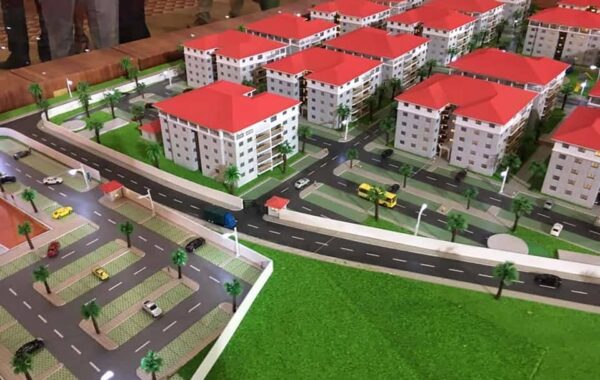
Top 5 Mistakes to Avoid When Purchasing Property in Ghana
Purchasing a property is one of the most significant financial decisions you’ll make in your lifetime. While the Ghanaian real estate market offers exciting opportunities for both first-time buyers and seasoned investors, navigating the process can be challenging. To ensure a smooth and successful property buying experience, it’s crucial to be aware of common pitfalls. In this comprehensive guide, we’ll explore the top five mistakes to avoid when purchasing property in Ghana and provide practical advice to help you make informed decisions.
Mistake 1: Failing to Conduct Proper Due Diligence
One of the most critical steps in the property buying process is conducting thorough due diligence. Failing to research the property’s ownership, land titles, and potential legal issues can lead to significant problems down the line. Before making an offer, take the time to verify the seller’s legitimacy, check for any outstanding debts or liens on the property, and ensure that all necessary documents are in order.
When conducting due diligence, it’s essential to review a range of documents, including:
- Land title documents: Verify that the seller has a valid title to the property and that there are no competing claims or encumbrances.
- Property deeds: Review the property deed to ensure that it accurately describes the property and its boundaries.
- Planning permissions and building permits: Confirm that any existing structures or planned renovations have the necessary approvals from local authorities.
- Tax records: Check that all property taxes and utility bills have been paid up to date.
Engaging the services of a reputable lawyer specializing in real estate can help you navigate the legal aspects of the transaction and ensure that your interests are protected.
Mistake 2: Overlooking Location and Future Development
When purchasing a property, it’s essential to consider not only its current state but also its potential for future growth. Overlooking the importance of location and upcoming developments in the area can be a costly mistake. Research the neighbourhood’s amenities, infrastructure, and accessibility to key services such as schools, hospitals, and shopping centres.
To assess the potential for future development in a neighbourhood, consider the following factors:
- Master plans and zoning regulations: Review local government master plans and zoning regulations to understand the intended use and development of the area.
- Infrastructure projects: Investigate any planned infrastructure projects, such as road expansions, public transportation improvements, or utility upgrades, that may impact the neighbourhood.
- Economic indicators: Analyze economic indicators, such as job growth, population trends, and investment patterns, to gauge the area’s long-term prospects.
- Local market trends: Study recent property sales and rental data to identify trends in property values and demand within the neighbourhood.
When choosing a location with strong growth prospects, you can maximise your investment’s potential and enjoy long-term capital appreciation.
Mistake 3: Underestimating Total Costs
Many property buyers focus solely on the purchase price, failing to account for the numerous hidden expenses associated with owning a home. These costs can include property taxes, maintenance fees, utility bills, and potential renovation expenses. Before committing to a purchase, create a comprehensive budget that factors in all anticipated costs.
When budgeting for a property purchase, consider the following hidden costs:
- Property taxes: Research the applicable property tax rates and calculate the annual tax liability based on the property’s assessed value.
- Maintenance and repairs: Allocate funds for ongoing maintenance, such as painting, landscaping, and general upkeep, as well as unexpected repairs.
- Utility bills: Estimate the monthly costs of electricity, water, gas, and other utilities based on the property’s size and consumption patterns.
- Renovation and improvement costs: If you plan to undertake any renovations or improvements, factor in the associated costs, including materials, labour, and permits.
- Insurance premiums: Consider the cost of homeowner’s insurance, which may be required by your mortgage lender and can protect your investment against potential risks.
Consulting with a financial advisor or experienced real estate professional can provide valuable insights into the true cost of property ownership and help you make informed decisions.
Mistake 4: Rushing the Decision-Making Process
Purchasing a property is a significant commitment, and rushing into a decision can lead to regret and financial strain. Some sellers may employ pressure tactics to encourage a quick sale, but it’s crucial to resist the urge to make an impulsive choice. Take the time to view multiple properties, compare prices, and carefully weigh the pros and cons of each option.
When considering a property, ask yourself the following questions:
- Does the property meet my current and future needs in terms of size, layout, and location?
- Is the price fair and in line with market values for similar properties in the area?
- Have I thoroughly inspected the property and identified any potential issues or defects?
- Have I reviewed all the necessary documents and conducted proper due diligence?
- Does the property align with my long-term financial goals and investment strategy?
Don’t be afraid to negotiate or walk away if a deal doesn’t meet your requirements. Remember, a well-informed and carefully considered decision is more likely to result in long-term satisfaction with your new property.
Mistake 5: Neglecting Professional Assistance
Navigating the complex world of real estate can be overwhelming, particularly for first-time buyers. Neglecting to seek professional assistance from reputable real estate agents, lawyers, and surveyors can lead to costly mistakes and missed opportunities. A skilled real estate agent can help you identify properties that match your criteria, negotiate favourable terms, and guide you through the buying process.
When selecting a real estate agent, consider the following factors:
- Experience: Look for an agent with a proven track record in the local market and experience working with buyers in your price range.
- Knowledge: Choose an agent who demonstrates a deep understanding of the local real estate market, including current trends, regulations, and best practices.
- Communication: Opt for an agent who communicates clearly, regularly, and responsively, keeping you informed throughout the buying process.
- Reputation: Research the agent’s reputation by reading reviews, seeking referrals, and verifying their credentials with professional organizations.
Similarly, a knowledgeable lawyer can ensure that all legal requirements are met and protect your interests throughout the transaction. Engaging the services of a professional surveyor can also help you assess the property’s condition and identify any potential issues before finalizing the purchase.
Conclusion
Purchasing a property in Ghana can be an exciting and rewarding experience, but it’s essential to approach the process with caution and due diligence. By avoiding these five common mistakes – failing to conduct proper research, overlooking location and future development, underestimating total costs, rushing the decision-making process, and neglecting professional assistance – you can increase your chances of a successful and stress-free property buying experience.
At Eden Heights, we understand the challenges faced by property buyers in Ghana. Our luxurious residential development, conveniently located near West Hills Mall in Accra, offers a secure and transparent buying experience for discerning property seekers. With world-class amenities, comprehensive management services, and a prime location, Eden Heights addresses the common pitfalls of property purchasing, providing a seamless and worry-free investment opportunity.
Frequently Asked Questions (FAQs):
-
What documents should I review during the due diligence process?
During the due diligence process, it’s essential to review land title documents, property deeds, planning permissions, building permits, and tax records. These documents will help you verify ownership, identify any encumbrances or competing claims, ensure compliance with local regulations, and confirm that all taxes and bills have been paid up to date.
-
How can I assess the potential for future development in a neighbourhood?
To assess the potential for future development in a neighbourhood, review local government master plans and zoning regulations, investigate planned infrastructure projects, analyze economic indicators such as job growth and population trends, and study recent property sales and rental data. This information will provide insights into the area’s intended use, development prospects, and long-term potential.
-
What hidden costs should I consider when budgeting for a property purchase?
When budgeting for a property purchase, consider hidden costs such as property taxes, maintenance and repair expenses, utility bills, renovation and improvement costs, and insurance premiums. These costs can add up quickly and impact your overall financial picture, so it’s crucial to factor them into your budget and decision-making process.
-
How long should I take to make a decision on a property?
The time taken to make a decision on a property should be based on your individual circumstances and the complexity of the transaction. However, as a general rule, it’s advisable to take at least a few weeks to conduct thorough research, view multiple properties, compare prices, and weigh the pros and cons of each option. Rushing into a decision can lead to regret and financial strain, so it’s essential to give yourself enough time to make an informed choice.
-
What are the benefits of working with a real estate agent when buying a property?
Working with a reputable real estate agent when buying a property offers several benefits, including access to a wide range of properties that match your criteria, expert guidance on market trends and best practices, assistance with negotiations and paperwork, and support throughout the entire buying process. A skilled agent can help you navigate the complexities of the real estate market, saving you time, money, and stress in the long run.
If you’re ready to embark on your property-buying journey in Ghana, we invite you to explore the luxurious offerings at Eden Heights. Our knowledgeable team is committed to providing personalised guidance and support throughout the buying process, ensuring that your investment is secure and your experience is exceptional. Contact us today to schedule a viewing and take the first step towards your dream home in Ghana.


